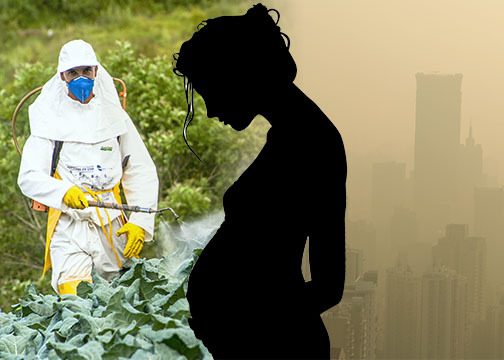Becoming a parent, especially a mother, is one of the biggest responsibilities that one can assume in ones lifetime. Creating and nurturing a new life is an immensely complex task, which requires a lot of dedication, love and also skill and knowledge. Being a mother is hard even when the child is healthy and growing harmoniously, but the challenges of parenthood are multiplied so many times over when the child's development goes awry, for example when the child has autism or other neurodevelopmental disorders.
About 1 in 68 children will develop autism, and even though we don't yet fully understand what causes it, our knowledge about what puts someone at risk for autism is growing each day. For example, we now know that autism is a heritable disorder: a child who has a first degree relative (a parent or sibling) with autism has a 1 in 5 chance of developing autism as well. These children are considered to have a high risk for autism. But the risk for autism is not purely genetic: it is also environmental. There is a growing body of research showing that autism risk is elevated by certain environmental factors such as toxins. In fact, one of the overarching themes at this year's International Meeting for Autism Research (IMFAR) was the issue of environmental causes of autism -- what factors in our environment are responsible for elevated autism risk, and can they explain part of the recent rise in the number of children diagnosed with autism?
When thinking about "environment," we usually conjure up images of the air we breathe, the water we drink, the soil we step on, the buildings we live in, etc. But much of the research on environmental risks for autism focuses instead on the pre-birth environment. In this case the environment is the mother, her body, the nutrients in her blood, the air in her lungs, the function of her various organs, etc. And even though traditionally, the mother's womb has been praised as being one of the safest places on earth, recent research warns us of lurking dangers. For example, the mother's exposure to organophosphate pesticides at some point during pregnancy was associated with increased risk for autism for the child in one study, with exposure during the third trimester of pregnancy doubling the autism risk. Air pollution has also been associated with increased risk for autism: mothers of autistic children were more likely to have lived in homes exposed to high traffic-related air pollution during their pregnancy. Also, mothers who had a metabolic condition such as diabetes, or who were obese during pregnancy, were more likely to have children with autism or developmental delay.
These findings are particularly worrisome given that sales of organic food (food free of pesticides) represents only 4 percent of the total U.S. food sales and it can be 30%-100% more expensive. More than 46.2 million people in the U.S. live in an area with high levels of air pollution, more than a third of U.S. adults (78.6 million people) are obese, and 9.3% (29.1 million people) have diabetes.
This suggests that becoming a mother has become an even harder endeavor than before: it requires more knowledge and awareness about risk factors, more money to be able to afford avoiding them, and more discipline and a restrictive life-style. We have unfortunately created a world that is cruel to mothers-to-be, a world that places tremendous burdens on their shoulders for ensuring the health of their children. This is a world in which mothers have to worry about the most basic and automatic decisions humans make, such as eating, breathing or simply having a well functioning body. By putting neurotoxins in the food we eat, polluting the air that we breathe and generating societal trends of food consumption that lead to obesity and diabetes, we have created a world that restricts tremendously the lives of women who choose to responsibly become mothers.
Reducing the environmental risk of autism is not just a health issue -- it's also a gender equality issue about the basic rights and freedoms of women. There is an old saying: "It takes a village to raise a child." We women should demand that our extended village, our society and world, takes better care of our children and of us by providing us with food, air and water that won't put our children at risk for autism or other neurodevelopmental disorders.
